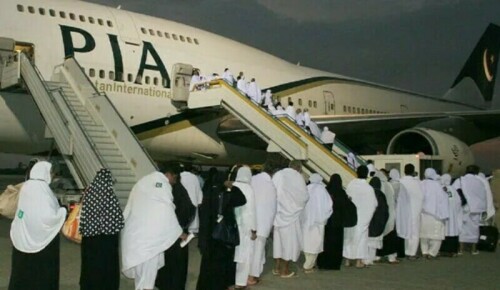KARACHI: The Sindh government, with the help of the World Bank Group, on Friday launched a $240 million megaproject — the Competitive and Liveable City of Karachi (CLICK) — to bring in radical reforms in infrastructure with particular emphasis on increasing efficiency of the city’s local government delivery system.
The project is set to be completed in a period of six years.
Local Government Minister Nasir Shah, representatives of the World Bank and senior government officials attended the launching ceremony held at the Peoples Hall of the New Sindh Secretariat.
The Sindh government will share $10m through its annual development programme and the major portion of $230m would be financed by the WB (International Bank for Reconstruction and Development) under Investment Projecting Financing (IPF) as loan to the provincial government.
The Sindh government had sought the WB’s assistance to help improve the operational functionality of the Karachi Metropolitan Corporation, district municipal corporations and District Council Karachi.
A detailed property survey of the city is also to be carried out under the $240m CLICK project
“Once successful, this project will be spread to whole of the province,” said Minister Shah.
According to him, three key components of the project are: “improvement of capacity for infrastructure improvement of the local councils of Karachi under the local government department with project component amounting to $181.86m; improvement of urban property tax system through the excise and taxation department with project component amounting to $40.4m; and the Sindh Investment Portal through the investment department with project component amounting to $17.2m.
He said the project aimed to support the LG department for institutional development or governance in the KMC and six DMCs and one district council to strengthen their financial resources for infrastructure development capacity.
Besides, it would also help to establish a public-private-partnership mode in the LG department as well as provide technical assistance for the Sindh Solid Waste Management Board.
Minister Shah said the project would help the government plan in a scientific manner for improving the ever-increasing shanty settlements in the sprawling metropolis. Besides, the worn-out sewerage system could also be improved accordingly.
He said CLICK had been designed only to improve the provincial capital. He sought the WB’s assistance in starting similar projects for other cities of Sindh.
John Roome, a senior official of the World Bank, said Karachi was a huge urban place that demanded a vision for its betterment keeping in view its growing population.
He said as a key priority it was required to put a better system in place in the city to ensure better liveability, jobs and issues relating to migration.
He said it was necessary to improve infrastructure of one of the largest cities in the world and the same was an imposing challenge for governments.
LG Secretary Roshan Shaikh said the project would also help the related authorities to preserve Karachi’s rich history.
Project director Zubair Channa said the grand scheme also offered for conducting a property survey and capacity building of the excise and taxation department.
Besides, it would also provide for the better usage of solid waste including generation of power and improvement of its shifting to the designated garbage transit stations.
Meeting with Murad
Sindh Chief Minister Syed Murad Ali Shah also met World Bank officials on Friday at CM House and discussed the provincial government’s development priorities and how the bank could support them.
Mr Shah spelled out his priorities, saying he had focused on the development of urban and rural areas equally. The urban areas needed drinking water and water for industrial requirements while the rural swathes were in need of efficient agricultural water system for growth of agro sector.
He said the other important project was urban transport schemes under which 21km Yellow Line Corridor should be developed with WB assistance under the Karachi Mobility Project (KMP).
The Yellow Line Corridor, starting from Dawood Chowrangi to Numaish, has three components.
The chief minister spoke about the WB-assisted Karachi Water and Sewerage Services Improvement Project, which is aimed at improving access to safe water services in the city and to increase Karachi Water and Sewerage Board’s financial and operational performance.
He said the loan was signed in December. It is a $100bn project in which $40m would be provided by IBRD, another $40m by Asian Infrastructure Investment Bank and $20m by the Sindh government.
Mr Shah said under the project there would be utility reforms and rehabilitation of water and sewerage network.
Published in Dawn, January 25th, 2020
















































Dear visitor, the comments section is undergoing an overhaul and will return soon.